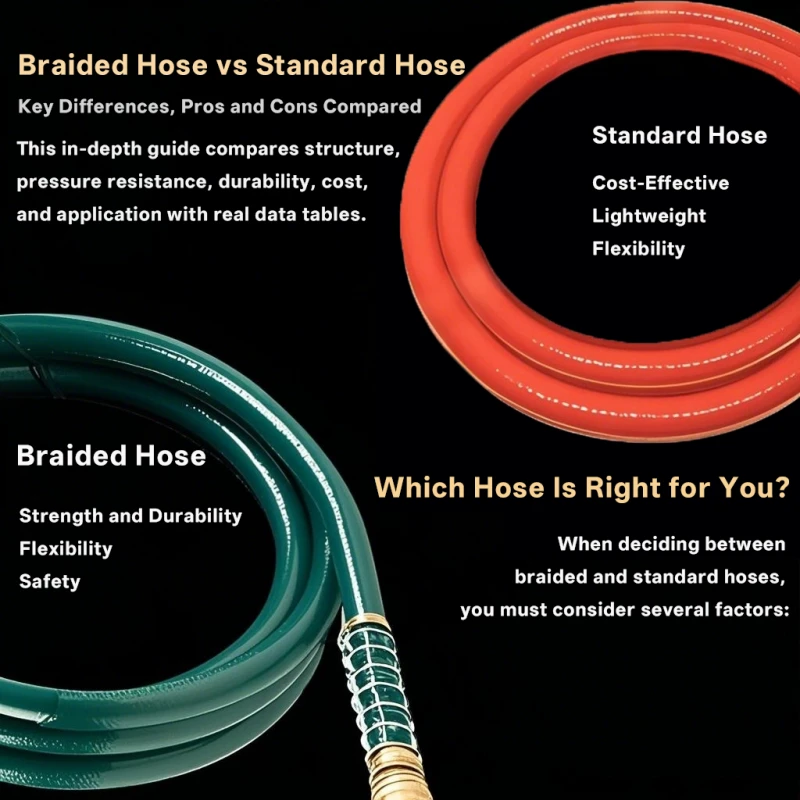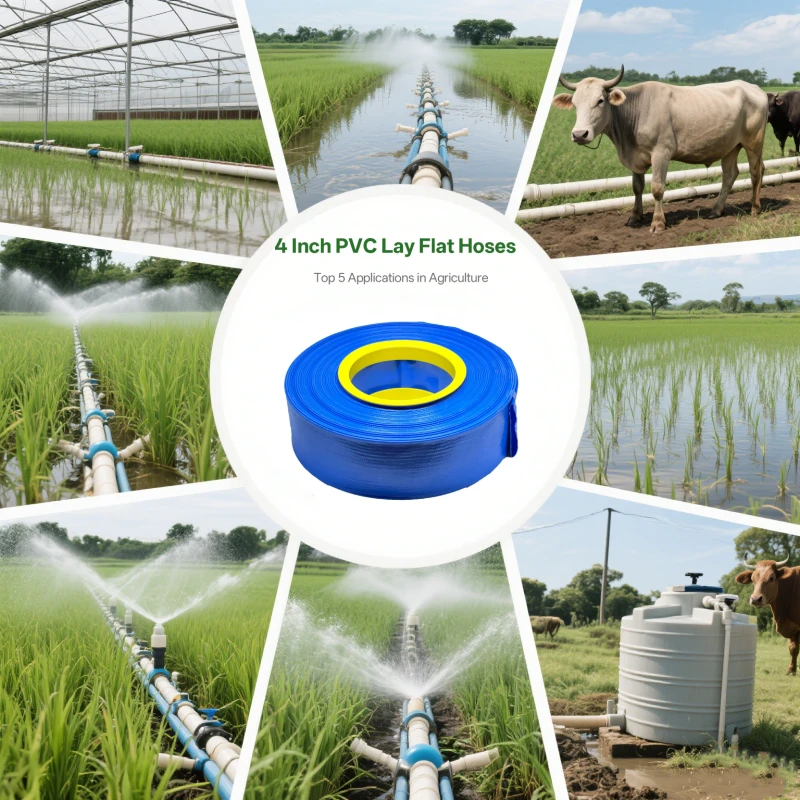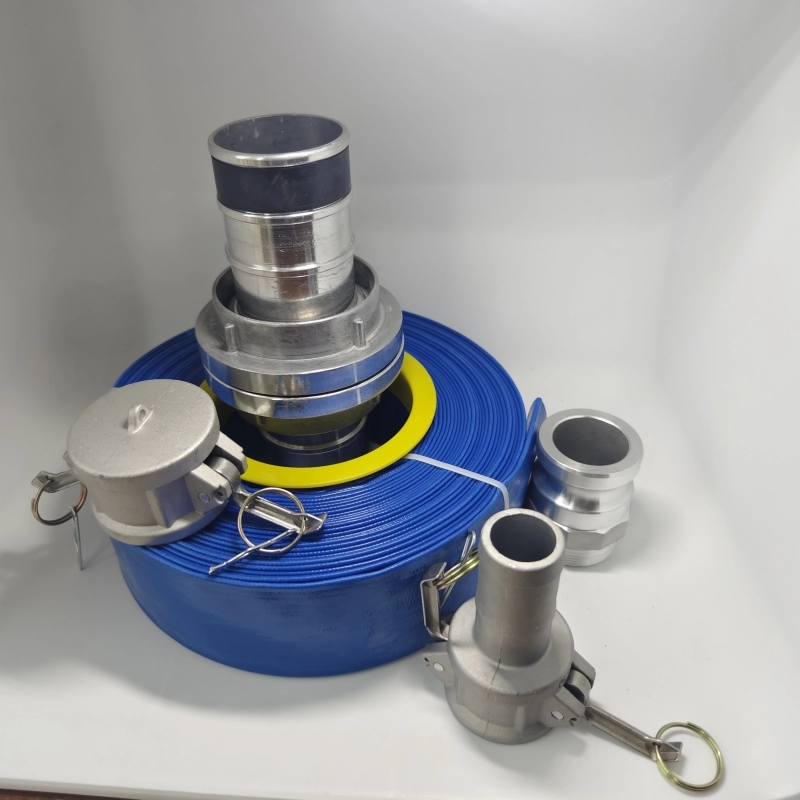PVC vs Rubber Garden Hose
Qingdao Renato Plastic Co., Ltd. is a leading manufacturer of PVC hoses and hose assemblies, offering products like garden hoses, layflat hoses, suction hoses, and high-pressure air/water hoses. With over 15 years of expertise, our factory in Shandong operates 60+ production lines and serves customers in over 60 countries. We pride ourselves on quality, customer satisfaction, and providing quick responses 24/7.
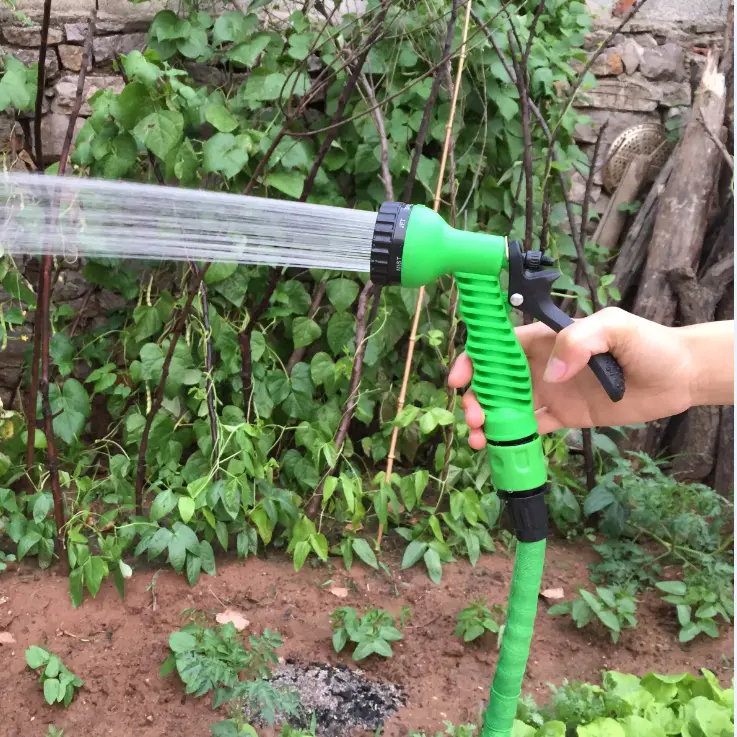
PVC vs Rubber Garden Hose: A Comprehensive Guide
Garden hoses are essential tools for homeowners, gardeners, and landscapers. When choosing a hose, the two most common materials to consider are PVC (polyvinyl chloride) and rubber. Each type of hose has unique characteristics that influence its performance, durability, and suitability for various applications. In this article, we will compare PVC and rubber garden hoses, examining their properties, benefits, and drawbacks, supported by research data and practical insights.
Overview of PVC and Rubber Garden Hoses
PVC Garden Hoses
PVC hoses are made from a synthetic plastic polymer. They are often reinforced with polyester or nylon mesh for added strength. Known for their lightweight and affordability, PVC hoses are commonly used for light to moderate watering tasks.
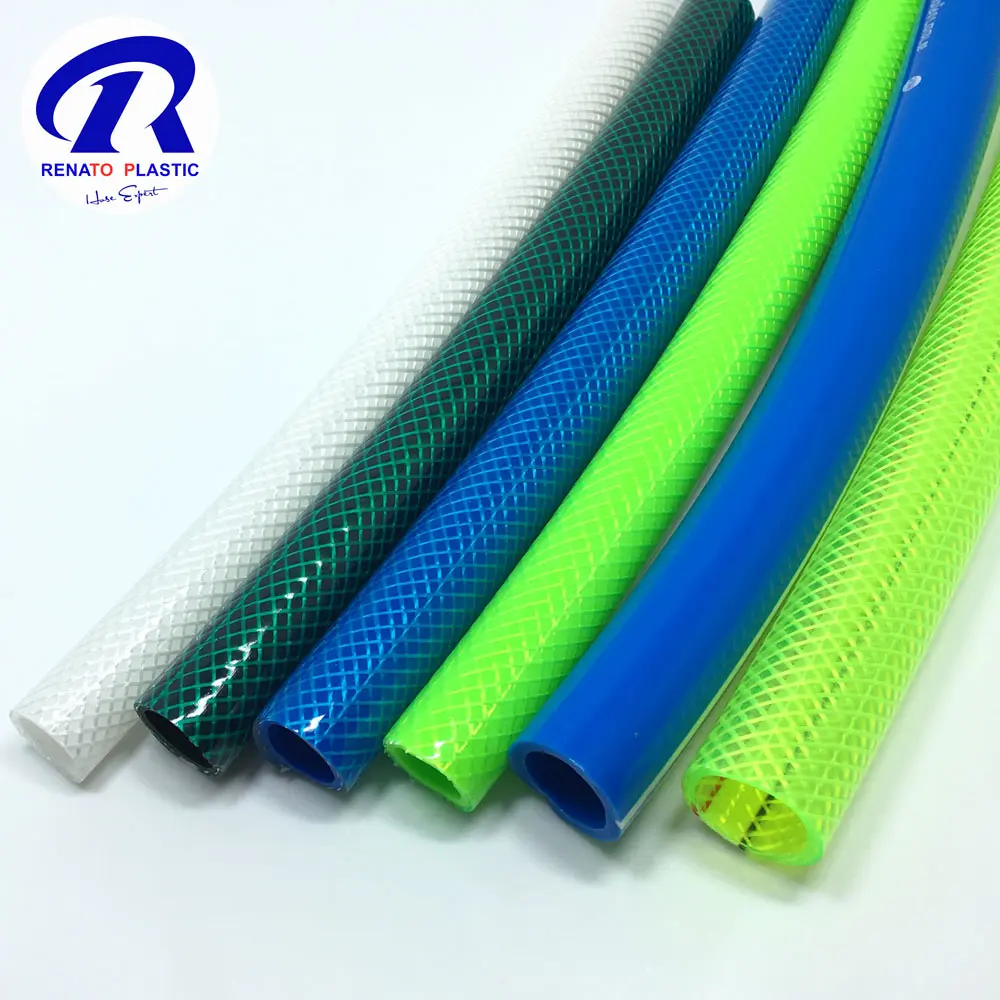
Rubber Garden Hoses
Rubber hoses are made from a blend of natural and synthetic rubber. They are more durable and flexible, designed to withstand heavy-duty use and extreme weather conditions.
Key Differences
| Feature | PVC Hose | Rubber Hose |
|---|---|---|
| Weight | Lightweight, easy to handle | Heavier, sturdier |
| Durability | Prone to cracks and kinks over time | Highly durable, resistant to wear |
| Flexibility | Rigid in cold weather | Flexible in all climates |
| Cost | Lower initial cost | Higher upfront investment |
| UV Resistance | Limited | Excellent |
| Temperature Tolerance | -5°C to 50°C | -30°C to 80°C |
Flexibility and Handling
One of the most noticeable differences between PVC and rubber hoses is their flexibility. Rubber hoses remain pliable even in freezing temperatures, making them ideal for year-round use. PVC hoses, on the other hand, tend to become stiff in cold weather, which increases the risk of kinks and cracks.
Research Data
Flexibility Test: A study comparing the pliability of PVC and rubber hoses at 0°C found that rubber hoses maintained 85% of their original flexibility, while PVC hoses dropped to 40%.
Durability and Lifespan
Rubber hoses are designed to handle heavy-duty tasks and resist wear and tear from dragging across rough surfaces. They are also resistant to chemicals and UV rays. PVC hoses are suitable for lighter tasks but tend to degrade faster, especially when exposed to direct sunlight.
Lifespan Comparison
| Hose Type | Average Lifespan |
|---|---|
| PVC | 3–5 years |
| Rubber | 7–10 years |
Cost Analysis
The upfront cost of a hose can be a deciding factor for many buyers
. PVC hoses are generally more affordable, making them an attractive option for casual gardeners or those on a budget. However, their shorter lifespan may result in higher long-term costs due to the need for replacements. Rubber hoses, while more expensive initially, are often a better investment for frequent and heavy-duty use.
Cost Comparison
| Hose Type | Average Price Range (per 50 feet) |
|---|---|
| PVC | $10 - $30 |
| Rubber | $20 - $50 |
Environmental Considerations
Both PVC and rubber hoses have environmental impacts. PVC hoses may contain harmful chemicals such as phthalates, which can leach into water if the hose is not labeled as safe for drinking water. Rubber hoses are typically free from such chemicals, making them a safer option for watering edible plants or filling pet water bowls.
Tip for Buyers: Look for hoses labeled “drinking water safe” to ensure minimal chemical exposure, especially if the hose will be used for potable water.
Temperature and Weather Resistance
Rubber hoses outperform PVC in extreme weather conditions. They can withstand temperatures ranging from -30°C to 80°C, making them suitable for freezing winters and hot summers. PVC hoses, while adequate for moderate climates, may crack in the cold or deform in high heat.
Performance in Extreme Temperatures
| Hose Type | Low-Temperature Resistance | High-Temperature Resistance |
|---|---|---|
| PVC | -5°C | 50°C |
| Rubber | -30°C | 80°C |
Usability and Storage
PVC hoses are lightweight, making them easier to carry and store, particularly for individuals who may struggle with the added weight of a rubber hose. However, this lightweight nature can also lead to issues with durability and kinking.
Rubber hoses, though heavier, are less likely to kink and can be coiled neatly for storage. Their robust construction ensures they retain their shape over time.
UV and Chemical Resistance
Rubber hoses offer excellent resistance to UV rays and chemicals, making them suitable for industrial use or areas with prolonged sun exposure. PVC hoses may degrade faster when exposed to sunlight or harsh chemicals, reducing their overall lifespan.
Choosing the Right Hose for Your Needs
When deciding between a PVC and a rubber hose, consider the following factors:
Frequency of Use: If you plan to use your hose frequently or for heavy-duty tasks, invest in a rubber hose for its durability and flexibility.
Budget: For occasional or light use, a PVC hose may be sufficient and more cost-effective.
Climate: In areas with extreme temperatures, a rubber hose is the better option.
Environmental Safety: Choose hoses labeled as safe for drinking water if they will be used for edible plants or pets.
Hybrid Options
For those looking for a middle ground, hybrid hoses combine the best features of PVC and rubber. These hoses are lightweight yet durable, offering improved flexibility and resistance to weather and wear. Hybrid hoses are an excellent choice for gardeners seeking a balance between affordability and performance.
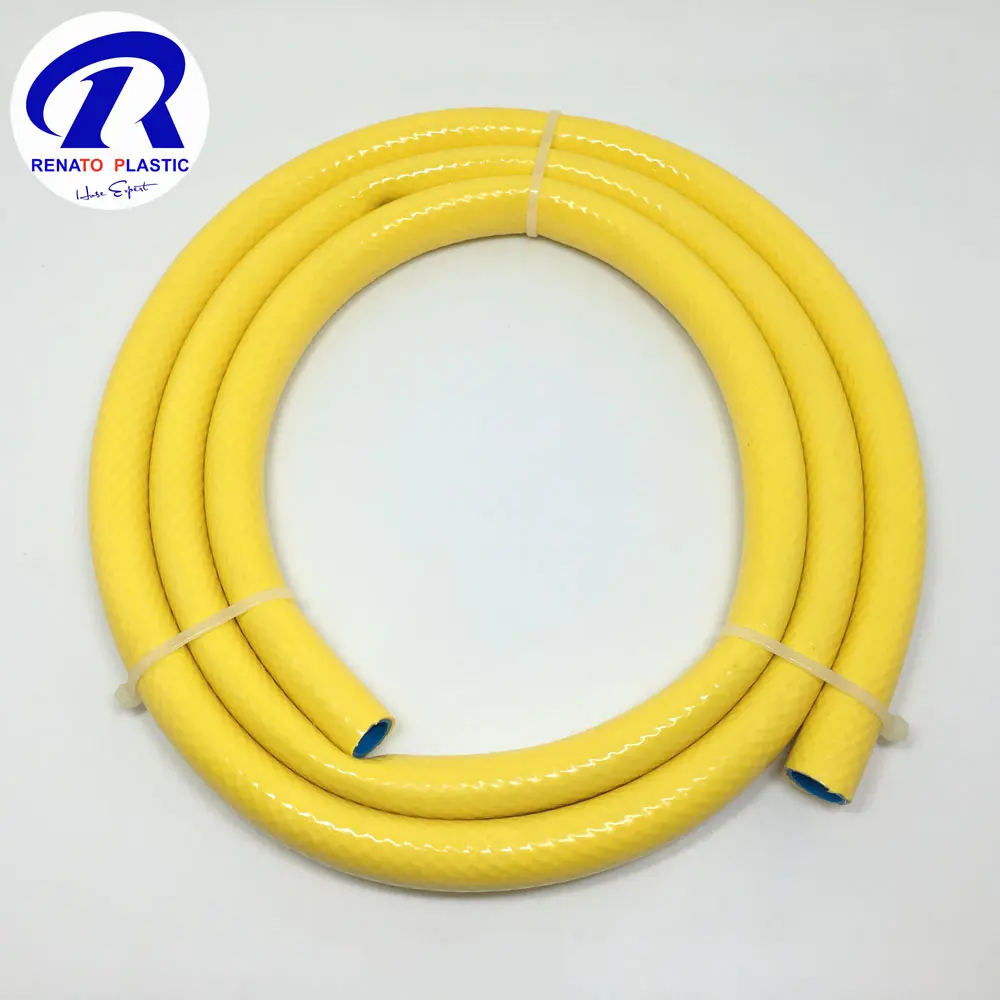
Consumer Preferences and Market Trends
Recent studies show a growing preference for durable and eco-friendly garden hoses. The U.S. flexible garden hose market is projected to grow at a CAGR of 4.3% from 2024 to 2030, driven by innovations in materials and consumer demand for long-lasting products.
Market Share by Material:
| Material | Market Share (2023) |
|---|---|
| PVC | 55% |
| Rubber | 30% |
| Hybrid | 15% |
Conclusion
Both PVC and rubber garden hoses have their strengths and weaknesses. PVC hoses are lightweight, affordable, and ideal for light use, while rubber hoses are durable, flexible, and suitable for heavy-duty tasks and extreme weather conditions. By considering your specific needs, climate, and budget, you can choose the hose that best suits your requirements.
For a long-term investment that offers superior performance, rubber hoses are the clear winner. However, if affordability and ease of handling are your priorities, a PVC hose may be the right choice. Hybrid hoses provide a versatile alternative, combining the benefits of both materials.
Investing in the right garden hose ensures efficient watering and a better gardening experience, saving time, effort, and money in the long run.
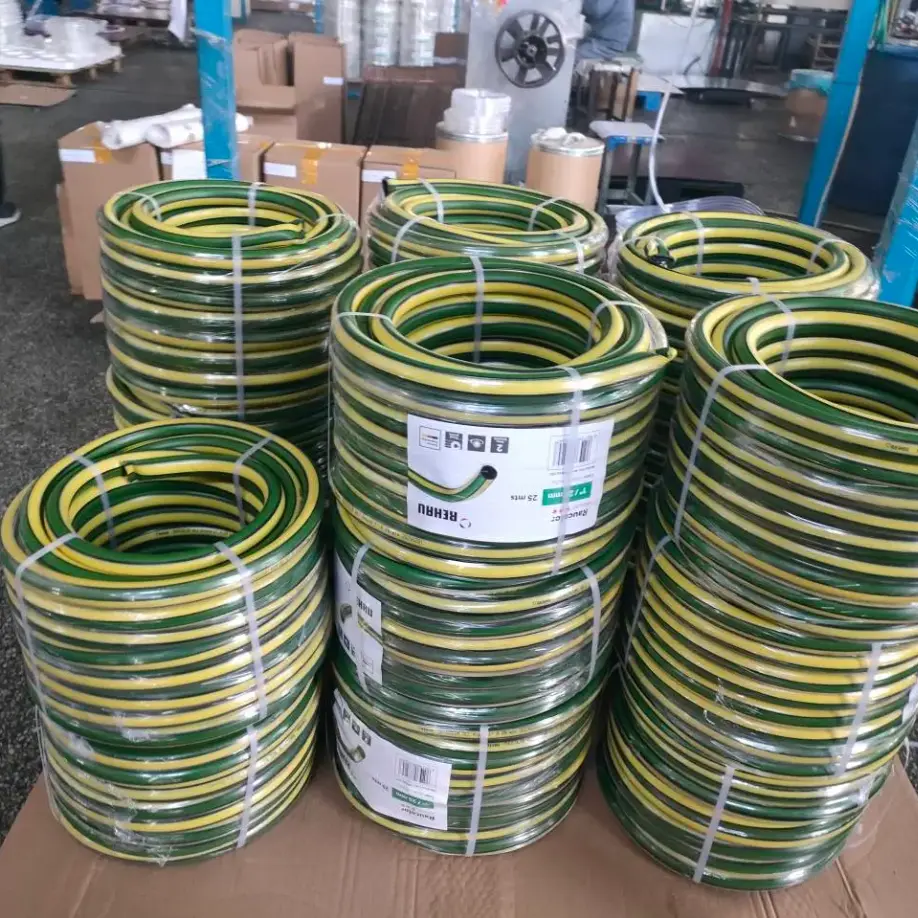
Why Choose QINGDAO RENATO PLASTIC CO., LTD for Your Garden Hose Needs?
If you're looking for reliable and high-quality garden hoses, QINGDAO RENATO PLASTIC CO., LTD is your trusted partner. With over 15 years of manufacturing expertise, we specialize in producing a wide range of PVC hoses and hose assemblies designed to meet diverse watering and irrigation needs.
Our Product Range:
PVC Garden Hoses: Durable, flexible, and available in various colors and sizes.
Layflat Hoses: Perfect for water discharge systems and irrigation.
Suction Hoses: Robust and ideal for water supply and drainage applications.
Fiber Reinforced Hoses: Enhanced strength for demanding environments.
Mix Rubber High-Pressure Air/Water Hoses: Built to withstand high pressures.
Hose Assemblies: Featuring Camlock Fittings, Storz Fittings, Nozzle Fittings, and Hose Clamps.
Our Advantages:
Advanced Manufacturing Facilities:
With 10 workshops and over 60 production lines in Shandong province, we produce hoses that meet the highest quality standards.Expert Team:
Our team of 120 skilled workers, 5 technicists, and 2 dedicated QC teams ensures that every product is meticulously crafted and rigorously tested.Global Reach:
Trusted by customers in over 60 countries, our hoses have been widely praised for their durability, performance, and affordability.Customer-Centric Philosophy:
We prioritize our customers, offering 7x24 quick response service and ensuring that all inquiries are addressed promptly.
Applications:
Our hoses and fittings are versatile, catering to:
Home and public place irrigation.
Water supply and discharge systems.
Industrial and agricultural needs.
If you need any help, please feel free to contact us.
